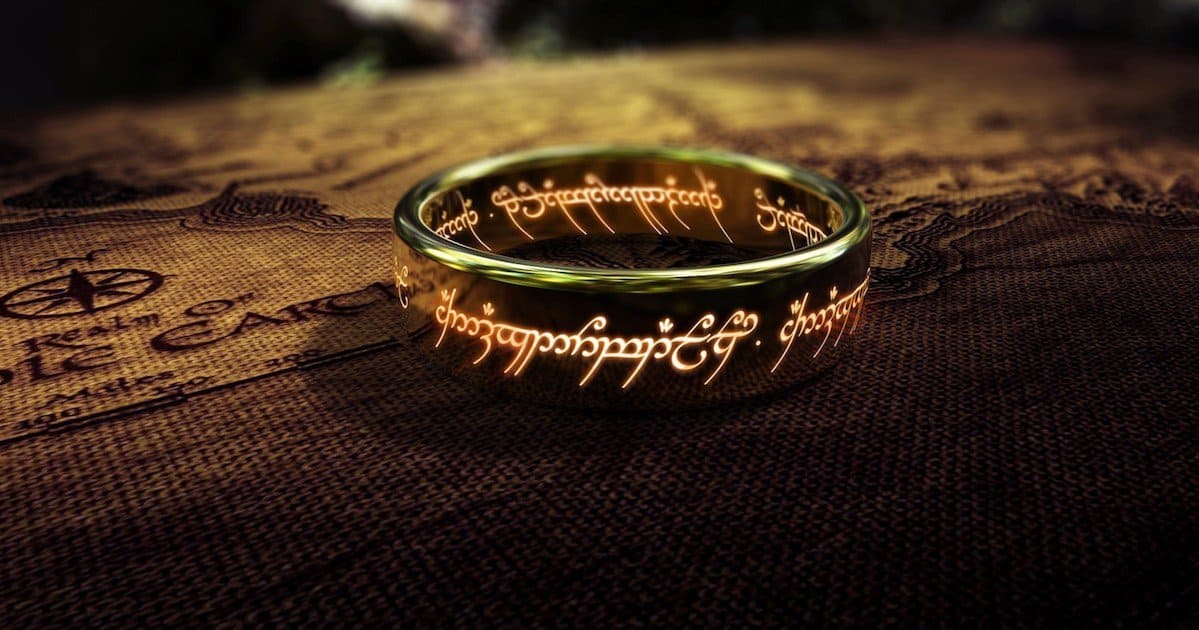Over the past few weeks I have been reading through The Lord of the Rings, slowly meandering my way through Middle Earth for the umpteenth time. Every time I read the books, I find myself drawn to something different, some new demonstration of Tolkien’s brilliance. One of the strengths that distinguishes his work from other fantasy is its depth. Tolkien did not simply write a story, he created a world. Before he wrote characters and narrative, he created mythology, planets, races, languages, and history. As we read about a small fellowship saving the world from peril, we realize that their actions are the culmination of thousands and tens of thousands of years. It is in their actions that races converge, that prophecies are fulfilled, that ages end and begin again.
In this reading, I have found myself especially impressed by the history of Middle Earth, and I rate this as one of Tolkien’s great successes. But it’s not merely that Tolkien obsessively created a history in its finest details, but that he faithfully sets his characters within it. He makes them small but significant players in a much wider, grander drama. They are always aware of those who have gone before and always thinking of those who will follow. The characters do not stand alone in the story, but always in the shadow of their forebears.
In this way, the narrative often unfolds slowly, looking forward and looking back. Even when there has been the drama of fast-paced action, Tolkien will often slow it right back down. This wonderful, plodding little passage follows close after a chaotic battle:
‘No, you do not understand,’ said Gimli. ‘No dwarf could be unmoved by such loveliness. None of Durin’s race would mine those caves for stones or ore, not if diamonds and gold could be got there. Do you cut down groves of blossoming trees in the springtime for firewood? We would tend these glades of flowering stone, not quarry them. With cautious skill, tap by tap – a small chip of rock and no more, perhaps, in a whole anxious day – so we could work, and as the years went by, we should open up new ways, and display far chambers that are still dark, glimpsed only as a void beyond fissures in the rock. And lights, Legolas! We should make lights, such lamps as once shone in Khazad-dûm; and when we wished we would drive away the night that has lain there since the hills were made; and when we desired rest, we would let the night return.
One of the great strengths of Tolkien’s work is its grounding in history. One of the great weaknesses of the contemporary church is its detachment from its own history. Few of today’s Christians have a clear sense of how the church came to be. They know of Acts and Reformation and Billy Graham, but the rest is a blur. They do not know their forebears, the ones who faithfully proclaimed and finally handed down the faith. They have no grounding in history—their own history.
This is not universally true, of course. I have been among some who cling tightly to their history—Reformed Presbyterians who love the Covenanters, Anglicans who esteem Cranmer and many of his contemporaries, Dutch Reformed believers who honor the men who framed their confessions. (I even went to one of their schools, Guido de Brès High School in Hamilton.) But for many others, they are completely unmoored from the past.
There are many reasons we ought to teach believers their history. History gives us purpose. History gives us hope. History gives us theological grounding. But as much as anything, history reminds us that we live in the shadow of those who have come before and that those who follow will, in turn, look back to us.
The characters in The Lord of the Rings know they are set within a wider drama that began ages prior and will continue ages hence. They are determined to act in ways that honor their forebears and leave a worthy example for their descendants. Their valor is motivated by their understanding that history has called them to this time, this place, and this set of circumstances. Their nobility is inseparable from their history. They speak and live as if every word of the mouth and every tap of the hammer will honor or dishonor those who have gone before and shame or bless those who will follow.
We’d do well to learn from their example. We, too, need to set believers within their history. We, too, need to teach them they are small but significant players in a much wider, grander drama. They must always be aware of those who have gone before and always think of those who will follow. They do not stand alone in the story, but always in the shadow of their forebears. What Tolkien did so well is what we do so poorly.









